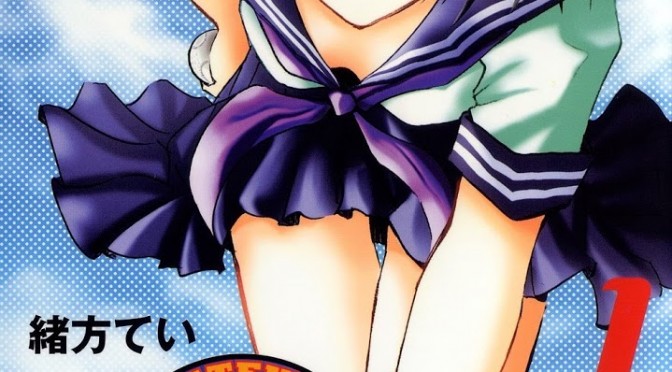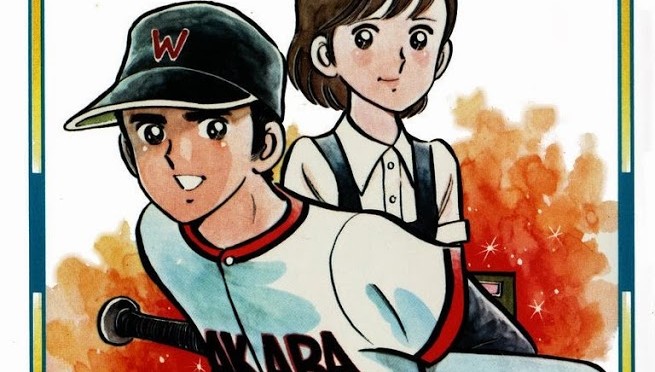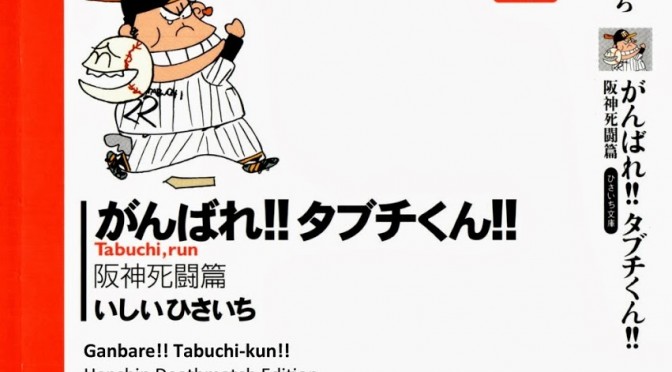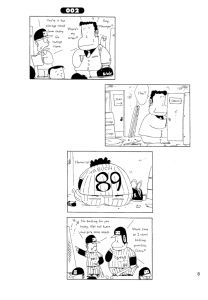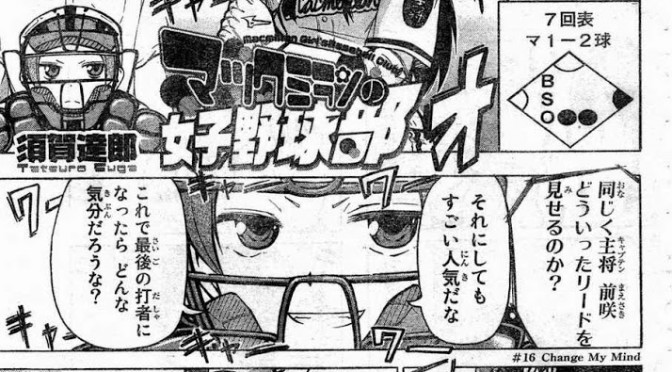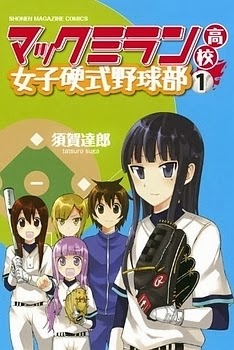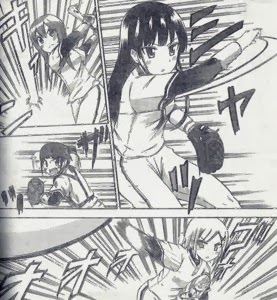Amateur Slugger is a baseball romance drama manga, this time not about high school baseball or professional baseball but about amateur sandlot teams sponsored by local businesses. Apparently they’re quite common in shopping districts in Japan. Kousuke, a college player, plays for one of those teams. As a high school player his one claim to fame was hitting a homerun off an amazingly good pitcher during his final Koshien tournament. Now, as a sandlot player, Kousuke’s motto is “Don’t put pressure on me.”
is a baseball romance drama manga, this time not about high school baseball or professional baseball but about amateur sandlot teams sponsored by local businesses. Apparently they’re quite common in shopping districts in Japan. Kousuke, a college player, plays for one of those teams. As a high school player his one claim to fame was hitting a homerun off an amazingly good pitcher during his final Koshien tournament. Now, as a sandlot player, Kousuke’s motto is “Don’t put pressure on me.”
One day, however, Yuuki Tsukasa, the girl on the cover, shows up at a game and strikes him out with ease. Turns out she’s the sister of Yuuki Toujiro, the pitcher he hit the homerun off, and she wants revenge. She even promises to give him her first kiss if he ever gets a safe hit off her.
Long story short, he gets the hit and she gives him the kiss. Turns out that while she did start out looking for revenge (because the homerun exacerbated her brother’s already terrible pre-game nervousness), she quickly discovered that Kousuke isn’t a guy who hates pressure, despite his claims, but rather one who performs best under pressure. She decides its her job to provide that pressure and one day get him to move up to a bigger stage in the baseball world. That’s it for the story.
Despite the “1” on the cover, Amateur Slugger is complete at one volume. While the story starts out about Kousuke, it quickly becomes clear to the reader that he’s a boring, overrated player and that Tsukasa is by far the more interesting and promising player. I mean, when you think about it seriously, a player who performs excellently under pressure but is meh everywhere else is basically useless. Sure Kousuke would probably play great in the playoffs, but you wouldn’t even get to the playoffs with him on your team.
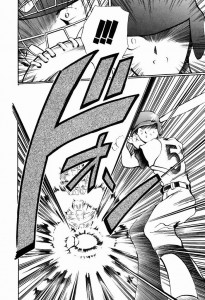
Tsukasa, on the other hand, is a fantastic pitcher. Despite being a high schooler of diminutive size, hitting her pitches is enough to train Kousuke to handle her brother Toujiro’s pitches when said Toujiro shows up to challenge him. At that point Toujiro is a major league starting pitcher, which means Tsukasa is on the major league level as far as speed and form go. This makes her one of the best pitchers in Japan (if we can believe such a thing is possible), and a shoo-in to be a softball star if she ever takes it up.
If the manga had continued and had not ended with Kousuke and a starry-eyed Tsukasa starting a lust-fueled relationship, I’m sure eventually she would have noticed his feet (and whole body) of clay, as opposed to her own overwhelming talent, and the whole basis for their relationship would have crumbled into dust. As it is, things end pretty well. Kousuke gets his hit off Tsukasa as well as a base hit off her brother, Kousuke and Tsukasa hook up and may or may not start dating, Toujiro returns to the majors and continues to dominate, and business continues as usual in the shopping district.
Apart from the needless fanservice, some rather bad art, and the tendency of Tsukasa to do and say stupid things (like promising her virginity to the opposing pitcher if he wins),
Amateur Slugger not a terrible manga by any means. The short length definitely works in its favor. Worth a read if you like sports romance manga and don’t mind some awkward fanservice.
is a baseball romance drama manga, this time not about high school baseball or professional baseball but about amateur sandlot teams sponsored by local businesses. Apparently they’re quite common in shopping districts in Japan. Kousuke, a college player, plays for one of those teams. As a high school player his one claim to fame was hitting a homerun off an amazingly good pitcher during his final Koshien tournament. Now, as a sandlot player, Kousuke’s motto is “Don’t put pressure on me.”
 Tsukasa, on the other hand, is a fantastic pitcher. Despite being a high schooler of diminutive size, hitting her pitches is enough to train Kousuke to handle her brother Toujiro’s pitches when said Toujiro shows up to challenge him. At that point Toujiro is a major league starting pitcher, which means Tsukasa is on the major league level as far as speed and form go. This makes her one of the best pitchers in Japan (if we can believe such a thing is possible), and a shoo-in to be a softball star if she ever takes it up.
Tsukasa, on the other hand, is a fantastic pitcher. Despite being a high schooler of diminutive size, hitting her pitches is enough to train Kousuke to handle her brother Toujiro’s pitches when said Toujiro shows up to challenge him. At that point Toujiro is a major league starting pitcher, which means Tsukasa is on the major league level as far as speed and form go. This makes her one of the best pitchers in Japan (if we can believe such a thing is possible), and a shoo-in to be a softball star if she ever takes it up.